Navigating the Wild: A Comprehensive Guide to the Ark: Survival Evolved Island Map
Related Articles: Navigating the Wild: A Comprehensive Guide to the Ark: Survival Evolved Island Map
Introduction
In this auspicious occasion, we are delighted to delve into the intriguing topic related to Navigating the Wild: A Comprehensive Guide to the Ark: Survival Evolved Island Map. Let’s weave interesting information and offer fresh perspectives to the readers.
Table of Content
Navigating the Wild: A Comprehensive Guide to the Ark: Survival Evolved Island Map

The Island, the initial and iconic map in Ark: Survival Evolved, serves as a cornerstone of the game’s experience. This sprawling, prehistoric landscape offers a diverse range of biomes, creatures, and resources, providing a rich and challenging environment for players to explore and conquer. Understanding its intricacies is crucial for survival and thriving in this unforgiving world.
A World of Diverse Biomes
The Island is a tapestry of distinct biomes, each offering unique challenges and opportunities. From the verdant Redwood Forest, teeming with life, to the treacherous snow-capped mountains, each region presents a distinct ecosystem to navigate:
- Redwood Forest: This lush biome provides a good starting point for new players. Abundant resources like wood, fiber, and berries are readily available. However, it’s also home to aggressive creatures like Raptors and Carnotaurus, demanding vigilance.
- Swamp: This treacherous biome is characterized by dense foliage, murky waters, and a plethora of dangerous creatures. It’s a hub for high-level resources like metal and oil but requires careful navigation due to its treacherous terrain and aggressive inhabitants.
- Mountain: The harsh, icy mountains are home to powerful creatures like the Giant Bee and the Snow Owl. While challenging, this biome offers valuable resources like obsidian and metal, making it a worthwhile challenge for experienced players.
- Beach: The shoreline provides a relatively safe starting area, offering access to water resources, fish, and some basic materials. It’s also a good location to tame low-level creatures.
- Grassland: This open biome is home to a variety of creatures, including herbivores and predators. It offers a balanced environment for resource gathering and taming, but requires caution against roaming predators.
- Center: This volcanic area is a challenging but rewarding biome. It offers access to rare resources like sulfur and metal, but is also home to dangerous creatures like the Titanboa and the Giganotosaurus.
Navigating the Terrain: A Detailed Look at the Island Map
The Island map features a variety of geographical features, each presenting its own challenges and opportunities:
- The Redwoods: This prominent mountain range dominates the central portion of the map. It’s a vital source of wood, fiber, and obsidian, but its steep slopes and treacherous cliffs make it a challenging area to traverse.
- The Swamp: This vast, murky area lies to the south of the map. It’s a prime location for gathering high-level resources like metal and oil, but its dense vegetation and aggressive creatures make it a dangerous place.
- The Mountains: These snow-capped peaks rise to the north of the map, offering a challenging yet rewarding environment for experienced players. They hold valuable resources like obsidian and metal, but are also home to powerful creatures like the Snow Owl and the Giant Bee.
- The Center: This volcanic area is located in the center of the map, offering access to rare resources like sulfur and metal. It’s also home to dangerous creatures like the Titanboa and the Giganotosaurus, requiring careful planning and preparation.
- The Beach: This expansive shoreline surrounds the island, offering a relatively safe starting area for new players. It’s a good location to tame low-level creatures and gather basic resources.
- The Grassland: This open biome stretches across the center of the map, offering a balanced environment for resource gathering and taming. However, it’s also home to a variety of predators, requiring vigilance.
Understanding the Ecosystem: Creatures, Resources, and Challenges
The Island’s diverse ecosystem is populated by a wide range of creatures, each with its unique characteristics, behaviors, and potential uses. Players must learn to navigate this complex web of life to survive and thrive:
- Creatures: From docile herbivores to ferocious predators, the Island is home to a vast array of creatures. Understanding their behaviors, strengths, and weaknesses is crucial for survival. Some creatures can be tamed and utilized as mounts or companions, offering valuable assistance in combat and resource gathering.
- Resources: The Island’s rich environment offers a plethora of resources, ranging from basic materials like wood and fiber to high-level resources like metal and oil. Players must gather these resources to craft tools, weapons, and structures, enabling them to survive and progress.
- Challenges: The Island presents numerous challenges, from harsh weather conditions and dangerous creatures to resource scarcity and the constant threat of starvation. Players must adapt to these challenges and develop strategies to overcome them.
FAQs: Addressing Common Questions About the Island Map
Q: What are the best starting locations on the Island map?
A: The Beach and the Redwood Forest offer relatively safe starting areas for new players. The Beach provides access to water resources and basic materials, while the Redwood Forest offers abundant wood, fiber, and berries.
Q: Where can I find high-level resources like metal and oil?
A: The Swamp and the Center are the primary locations for high-level resources. The Swamp offers access to metal, oil, and sulfur, while the Center provides access to sulfur and metal.
Q: What are some of the most dangerous creatures on the Island?
A: The Giganotosaurus, Titanboa, Carnotaurus, and Snow Owl are among the most dangerous creatures on the Island. They require careful planning and preparation to defeat.
Q: How do I tame creatures on the Island?
A: Taming creatures requires a combination of patience, strategy, and resources. You must first knock a creature unconscious using tranquilizer darts or bolas. Then, you must feed it specific food items to raise its taming meter.
Q: What are some tips for surviving on the Island?
A: Here are some essential tips for survival:
- Gather resources: Always be on the lookout for resources, as you’ll need them to craft tools, weapons, and structures.
- Build a base: Establish a base of operations to store your belongings, craft items, and protect yourself from predators.
- Learn to tame creatures: Taming creatures can provide valuable assistance in combat, resource gathering, and transportation.
- Be aware of your surroundings: The Island is a dangerous place, so always be aware of your surroundings and potential threats.
- Don’t be afraid to experiment: The Island is a vast and complex world, so don’t be afraid to experiment with different strategies and approaches.
Conclusion: Embracing the Island’s Challenges
The Island, with its diverse biomes, intricate terrain, and challenging ecosystem, stands as a testament to the depth and complexity of Ark: Survival Evolved. It’s a world that demands constant vigilance, strategic thinking, and a willingness to adapt. Mastering the Island’s intricacies not only ensures survival but also unlocks the full potential of the game, allowing players to truly experience the thrill of conquering a prehistoric world.

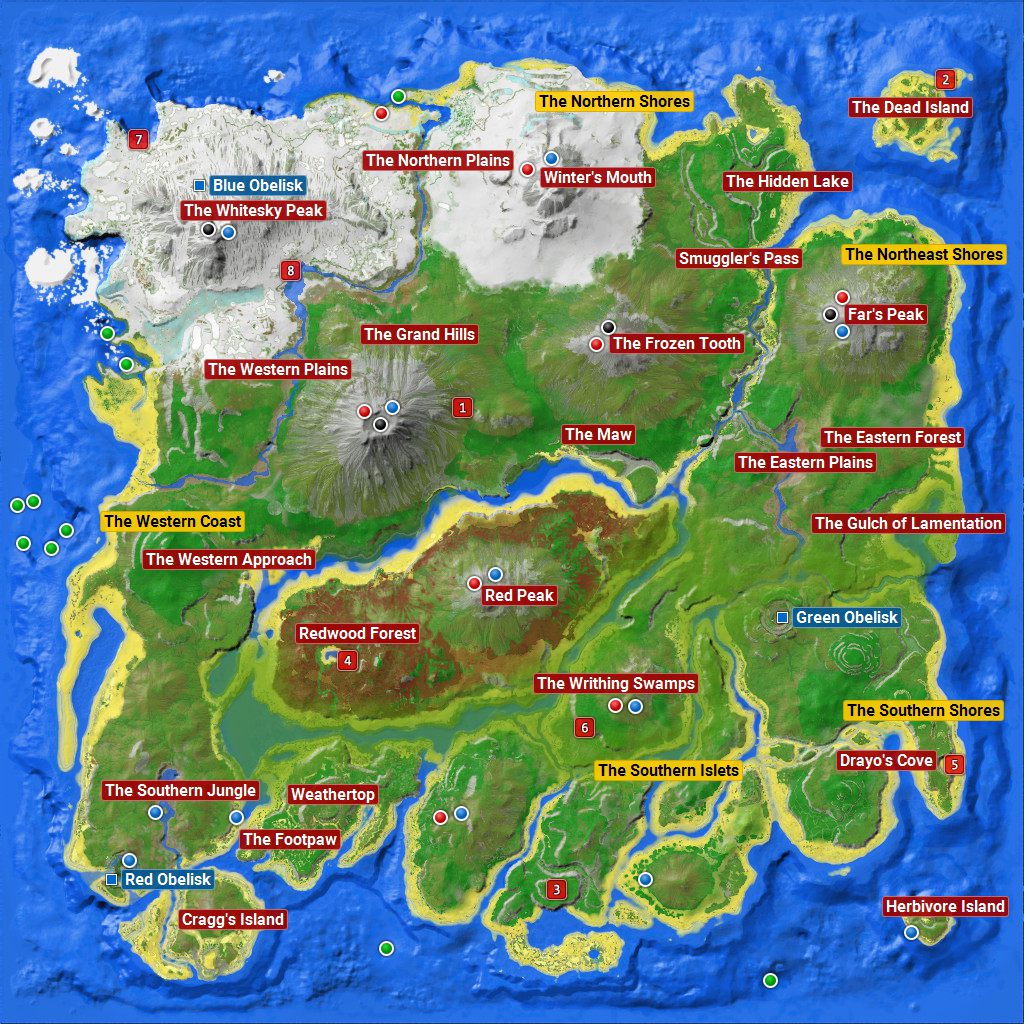
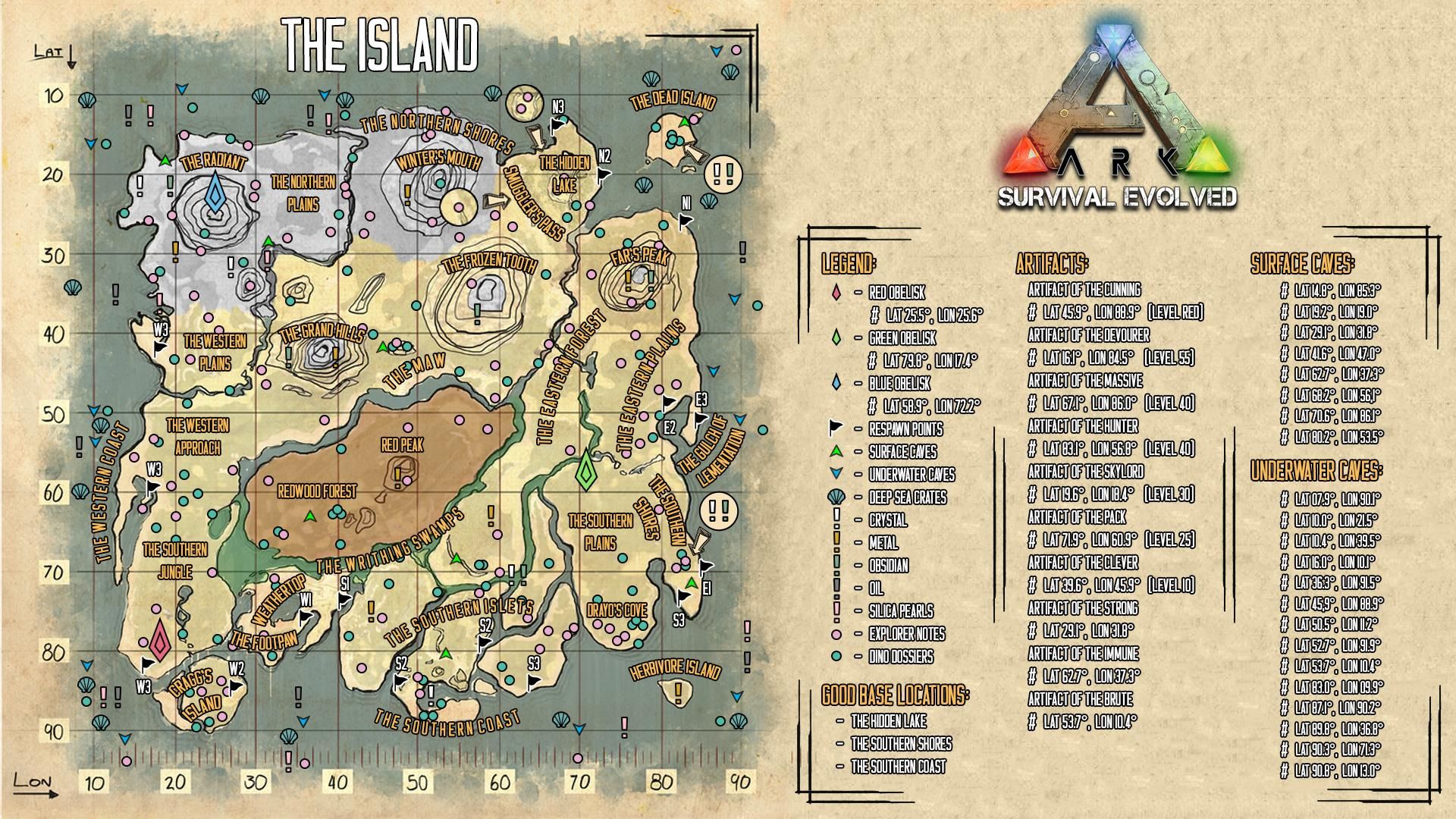
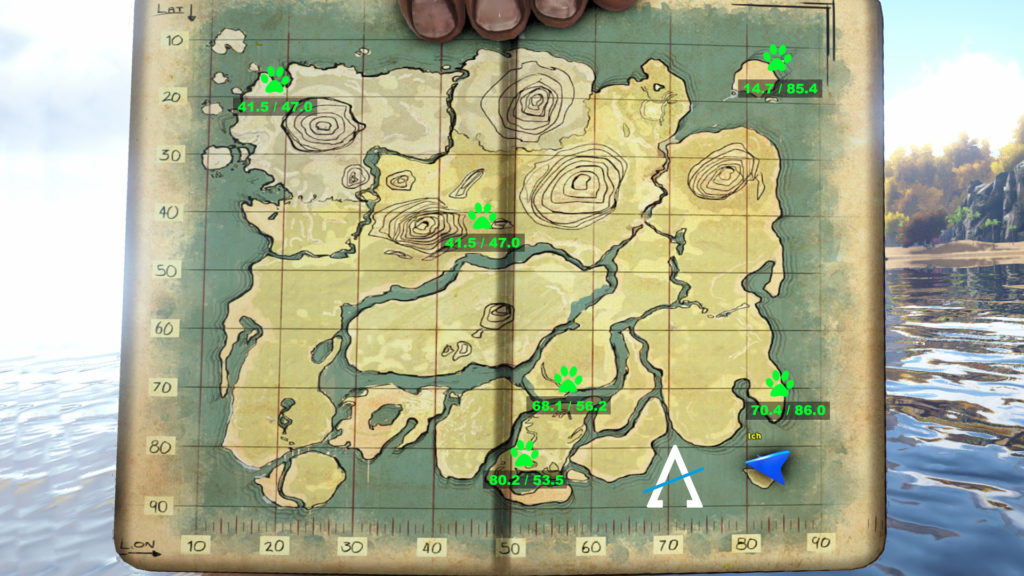
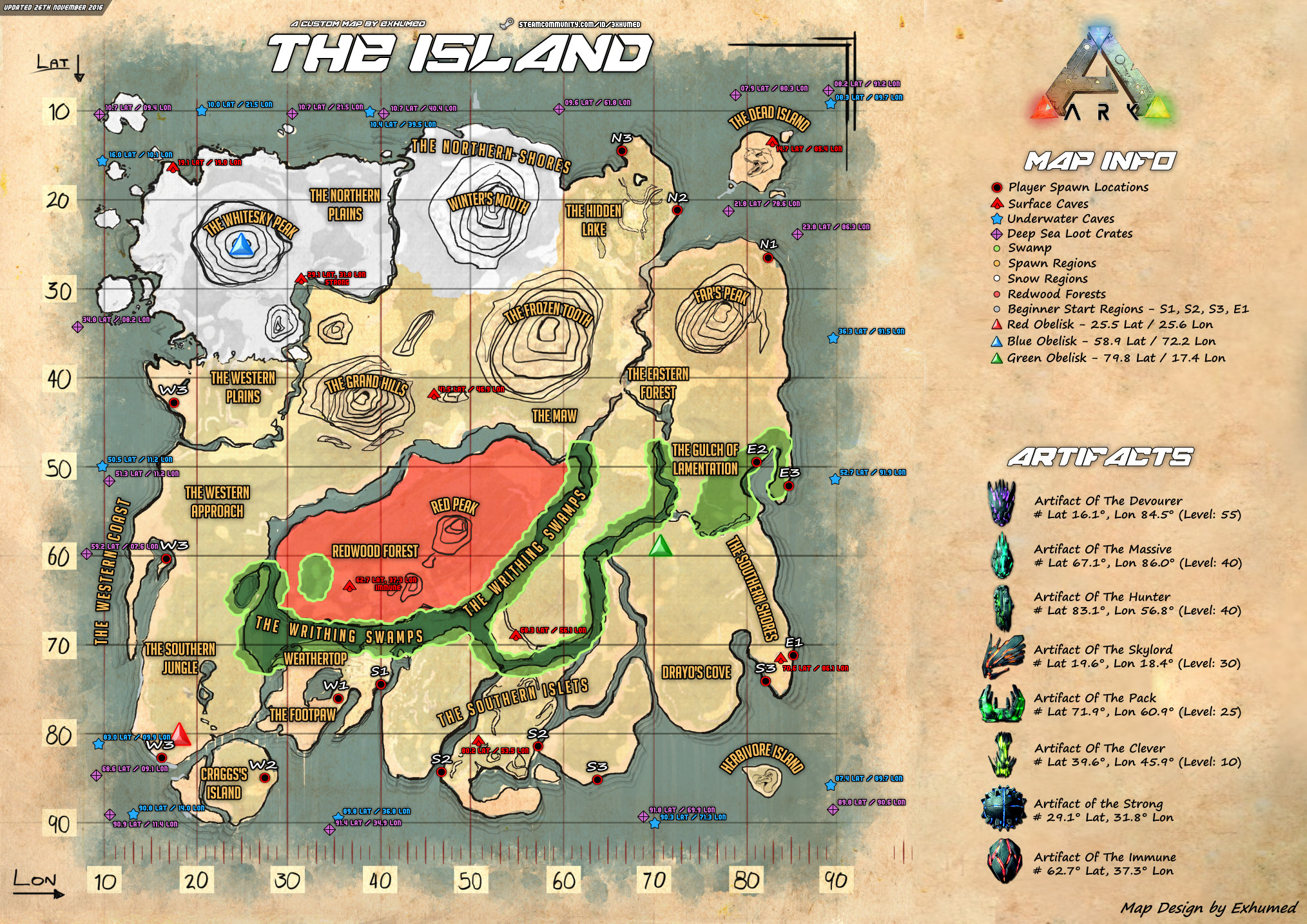

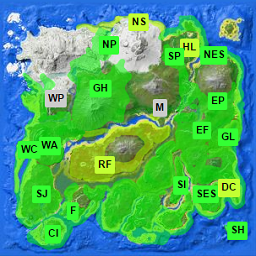

Closure
Thus, we hope this article has provided valuable insights into Navigating the Wild: A Comprehensive Guide to the Ark: Survival Evolved Island Map. We hope you find this article informative and beneficial. See you in our next article!